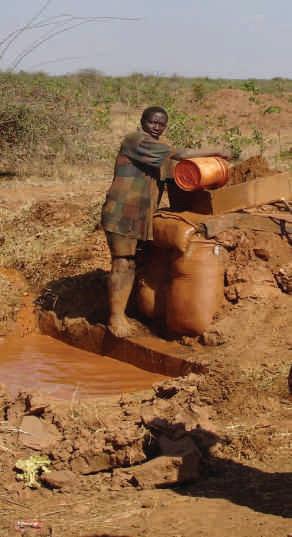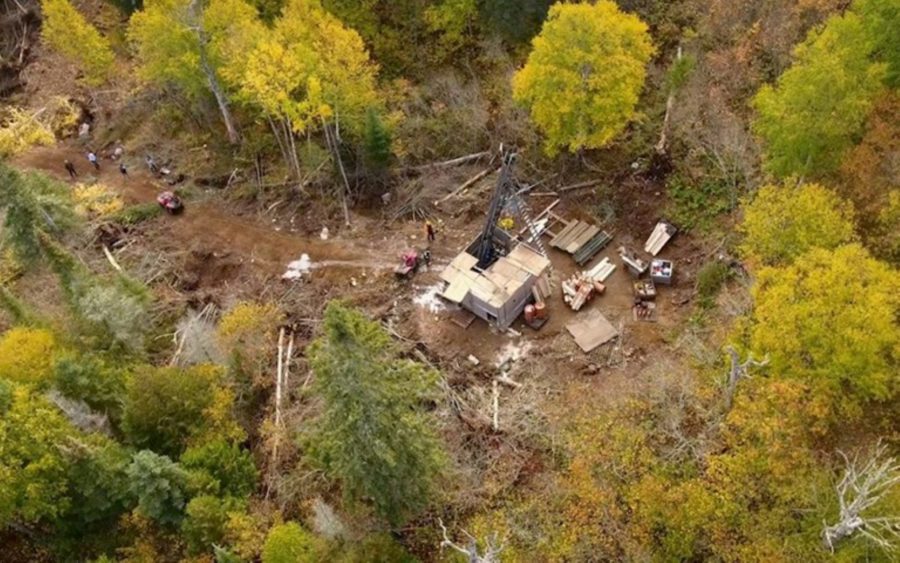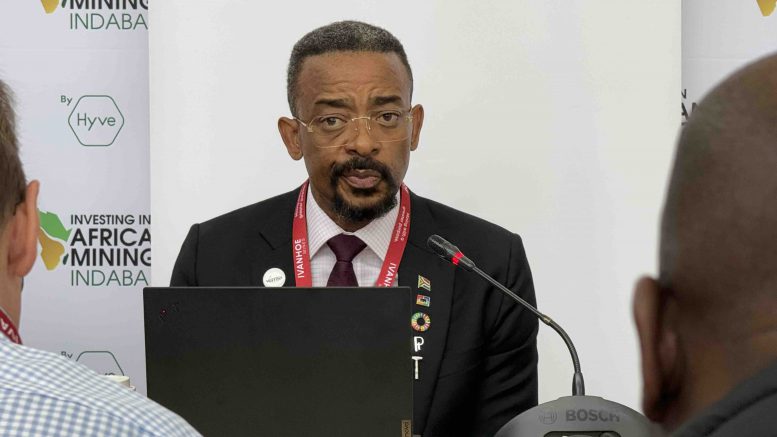At age 13, Alfaxad Chacha started digging. He never stopped. Seven days a week, 14 hours a day, he sifted through the red mud and rock of the Tanzanian landscape under an equatorial sun. With a little luck and a lot of backbreaking labour, Alfaxad and his friends eked out a meagre living on the miniscule bits of gold they uncovered.
It was difficult work, using dangerous explosives and toxic chemicals. But for 1.5 million Tanzanians, this primitive form of artisanal mining is a daily reality.
Today, Chacha is 50 years old. He lives in the village of Kerende in Tanzania's Mara region. A life of digging for gold under the ground has hardened him.
"I am an artisanal gold miner. I have been all my life and so were my parents before me, but I'm not too proud of what I do," Chacha says. "My work is barely able to support me, my family and my community. It is very hard work for very little money. This is not the life I dreamt of, but it is all I have."
Like many others, Chacha spends his days digging, crushing and grinding ore, to unlock the small particles of gold it contains. He sells his product for a fraction of its true value to gold dealers who pass through the village. It's part of an underground gold industry in Tanzania - one with no government regulation or oversight of any kind.
"I know I put my life at risk, using explosives with no safety equipment. I put my family in danger by exposing them to mercury. I put the land at risk because the sulphates, mercury and arsenic I leave behind destroy our crops and pollute the water," Chacha says. "But I don't do this because I want to; I have no choice. I have to make a living and support my family."
Like Chacha, Tanzania's army of artisanal miners are increasingly finding themselves with less land, less money and even fewer choices.
These small-scale miners are the focus of Barrick's new Artisanal and Small-Scale Mining Initiative (ASM). This ambitious, community-driven initiative aims to transform artisanal mining activities in Tanzania into regulated, productive and sustainable small-scale mining operations.
A pilot project targeting more than 2,000 artisanal miners is already underway near Barrick's North Mara operation. The company is investing $2.5 million to construct a model mine near North Mara, where artisanal miners can learn safe and effective mining techniques. The company also has plans to expand the program to its Bulyanhulu mine and Buzwagi project.
HISTORY
Artisanal mining in Tanzania dates back to the early 20th Century. Since then, this activity has provided a livelihood for many people. Yet over time, small-scale miners have adopted harmful environmental practices, with little regard for their own safety. Organized crime has also traditionally been involved in the industry, indenturing countless artisanal miners who have few alternatives.
These miners rely on knowledge passed down from their parents, and use outdated technology. Most are unaware of fluctuations in the market value of gold, and often sell their gold for a pittance, perpetuating a cycle of poverty.
When large-scale mining came to Tanzania in the 1990s, companies such as Barrick purchased mineral rights from their legal owners. As a consequence, so-called artisanal miners were often displaced from land they held no legal title to. Today, many of them now search for gold in and around the country's large mines, posing numerous safety and environmental risks.
Barrick's Artisanal and Small-Scale Mining Initiative aims to change all that. Officials from Barrick and the Tanzanian government launched the project at an event in Dar es Salaam in August.
Tanzania's Minister of Energy and Minerals, William Ngeleja, called the initiative the "greatest opportunity" his country has to develop a safe and sustainable artisanal and small-scale mining sector. He also heralded Barrick's leadership on the issue and encouraged other mining companies to follow suit.
"At Barrick, we believe artisanal and small-scale miners play an important role in the country's mining sector," says Gareth Taylor, Barrick's Africa region vice-president. "This initiative will ensure sufficient land is set aside for small-scale miners, while giving them the tools they need to mine safely and prosper in Tanzania's vibrant mining industry."
Under the program, artisanal and small-scale miners will have access to financing in order to legally acquire land for mining. The initiative will introduce training, efficient tools and clean technology to artisanal miners, making their work easier and leaving the land healthy for future generations.
Safety will also be a focus, ensuring miners do not harm themselves, their families or the community by improper use of mercury and other chemicals.
Artisanal and small-scale mining committees have already been formed at North Mara and Bulyanhulu mines. They include representatives from village leaders, artisanal and small-scale miners, women and youth groups, local government and Barrick. To date, four co-operative mining societies have registered in the Tarime District employing over 1,500 people.
The transformation of the artisanal industry will be a long-term process, involving a wide range of stakeholders. People like Alfaxad Chacha are now a part of that process.
KEY STEPS TO BARRICK'S ARTISANAL AND SMALL-SCALE MINING INITIATIVE
In consultation with the community, Barrick has identified key steps that are being implemented in sequence to arrive at regulated, productive and sustainable small-scale mining operations.
MOBILIZATION involves educating and informing artisanal communities to build a desire to transform the industry. The aim is to impart a sense of ownership, civic responsibility and entrepreneurial skills to ensure there is a common sense of purpose within the community.
ACCESS TO LAND is essential, since most artisanal miners do not own land. Adequate land must be acquired to accommodate responsible mining and waste containment. To accomplish this, Barrick's ASM initiative is organizing artisanal miners into registered co-operative societies, which will be granted legal mineral rights
MODERN TECHNOLOGY is not available to most artisanal miners. The ASM initiative will identify and distribute the most appropriate technology that is safe, environmentally friendly and easy to operate and maintain. Artisanal miners will be trained on how to operate the new technology and improve their current methods.
FUNDING is required for artisanal operations to run efficiently enough to be sustainable as businesses. Barrick is spearheading the ASM initiative but welcomes other stakeholders who wish to support the development of this sector.
STAKEHOLDER MANAGEMENT is crucial. To be successful, the project must be embraced and supported by the government and communities. Barrick is committed to open and two-way dialog with all interested parties.
(The foregoing article was first published in "Beyond Borders", a BARRICK GOLD quarterly report on responsible mining, edited by Nancy J. White, the company's communications director for responsible mining. CMJ reprints it here by permission. "Beyond Borders" contains several other items highlighting Barrick's initiatives around the world. It will be posted soon at www.Barrick.com.)






Comments